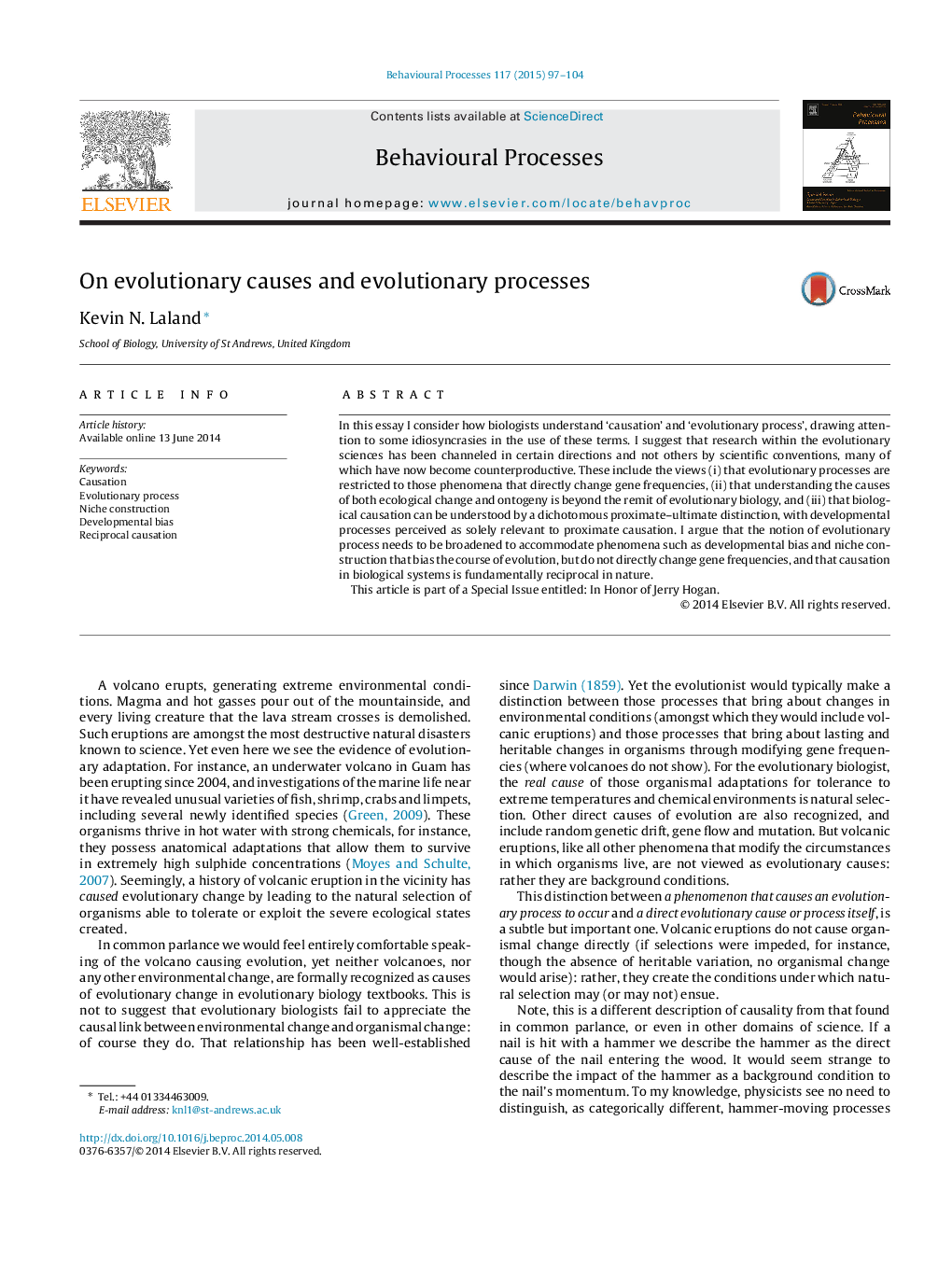| Article ID | Journal | Published Year | Pages | File Type |
|---|---|---|---|---|
| 2426560 | Behavioural Processes | 2015 | 8 Pages |
•Discusses how the concepts of ‘cause’ and ‘process’ are applied in the evolutionary sciences.•Suggests that some prominent conventions in evolutionary biology may hinder recognition of causally relevant phenomena.•Recommends that the ‘evolutionary process’ concept be broadened to accommodate phenomena that bias the course of evolution.•Such biases on selection include developmental bias and niche construction.
In this essay I consider how biologists understand ‘causation’ and ‘evolutionary process’, drawing attention to some idiosyncrasies in the use of these terms. I suggest that research within the evolutionary sciences has been channeled in certain directions and not others by scientific conventions, many of which have now become counterproductive. These include the views (i) that evolutionary processes are restricted to those phenomena that directly change gene frequencies, (ii) that understanding the causes of both ecological change and ontogeny is beyond the remit of evolutionary biology, and (iii) that biological causation can be understood by a dichotomous proximate–ultimate distinction, with developmental processes perceived as solely relevant to proximate causation. I argue that the notion of evolutionary process needs to be broadened to accommodate phenomena such as developmental bias and niche construction that bias the course of evolution, but do not directly change gene frequencies, and that causation in biological systems is fundamentally reciprocal in nature.This article is part of a Special Issue entitled: In Honor of Jerry Hogan.
